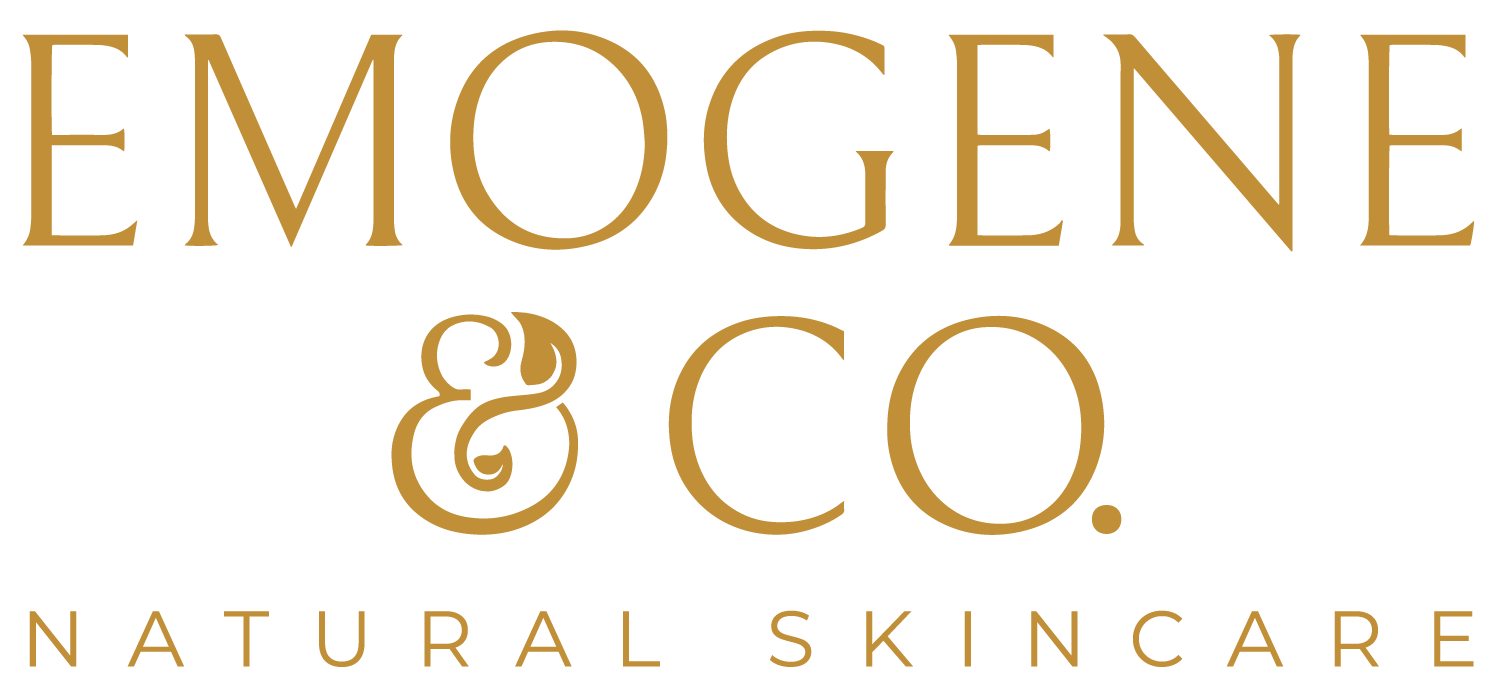Exfoliation is one of the most important steps in any skincare routine. It removes dead skin cells, boosts radiance, unclogs pores, and allows your products to absorb more effectively. But not all exfoliation is created equal. At Emogene & Co., we believe in tailored skincare—and that includes understanding the different types of exfoliation and how they work.
Let’s break down the three main types of exfoliation: chemical, physical, and enzyme-based, and help you determine which one is best for your skin.
1. Chemical Exfoliation
What it is: Chemical exfoliants work by using acids to dissolve the bonds that hold dead skin cells together, allowing them to shed naturally and reveal a smoother, more radiant complexion. These exfoliants fall into three main categories: AHAs (Alpha Hydroxy Acids), BHAs (Beta Hydroxy Acids), and PHAs (Poly Hydroxy Acids). AHAs, such as glycolic acid, lactic acid, and mandelic acid, are water-soluble and work on the surface of the skin to improve tone, texture, and brightness. BHAs, like salicylic acid, are oil-soluble and penetrate deeper into the pores, making them ideal for oily or acne-prone skin. PHAs, including gluconolactone and lactobionic acid, are the gentlest of the three. Their larger molecular size means they exfoliate more slowly and are better suited for sensitive or reactive skin. Chemical exfoliation is an effective, non-abrasive way to target breakouts, dullness, fine lines, and uneven skin tone.
Best for: most skin types but especially beneficial for those with dull, uneven, acne-prone, hyperpigmented, or aging skin. AHAs work best for normal to dry skin, BHAs for oily and acne-prone skin, and PHAs for sensitive or reactive skin.
Our Pick: Nashville Skin Date Night Bright Pads
These exfoliating pads are formulated with a gentle yet effective concentration of acids that promote skin cell turnover, smooth texture, brighten tone, and reduce the appearance of pores. This once-weekly exfoliating pad can calm redness for a brighter, clearer complexion.
2. Physical Exfoliation
What it is: Physical exfoliants use fine particles, textured tools, or brushes to manually slough off dead skin cells from the surface, instantly revealing smoother, softer skin. Also referred to as manual exfoliation, this method provides immediate results and a refreshed feel, making it a favorite for those who enjoy a tactile skincare experience. However, because it involves friction, it should be used gently and sparingly—especially on sensitive, inflamed, or acne-prone skin—to avoid irritation or microtears in the skin barrier.
Best for: normal to oily skin types that can tolerate gentle manual scrubbing. It’s generally not recommended for sensitive, inflamed, or acne-prone skin as it can cause irritation or microtears.
Our Pick: Sunday Skin Fresh Face Exfoliating Cleanser
This gentle scrub uses fine, skin-safe particles to polish the surface of your skin without causing microtears. It is a gentle yet effective physical exfoliant enriched with Irish Moss, glycerin, and natural bamboo extract to hydrate, nourish, and smooth the skin. With added botanicals like coconut fruit extract and pink grapefruit, it offers a refreshing cleanse while sloughing away dead skin cells—perfect for revealing a soft, radiant glow without irritation. Use 1-2 times per day to reveal softer, smoother skin instantly. Always follow up with hydration.
3. Enzyme Exfoliation
What it is: Enzyme exfoliants harness the power of natural fruit-derived enzymes—commonly from papaya, pineapple, and pomegranate—to gently break down and dissolve the protein bonds that hold dead skin cells on the surface. Unlike chemical or physical exfoliants, enzymes work without acids or abrasive particles, making them incredibly gentle and ideal for even the most sensitive or reactive skin types. This soothing form of exfoliation helps brighten the complexion, improve skin texture, and promote a healthy glow with minimal risk of irritation or over-exfoliation.
Best for: sensitive, reactive, or easily irritated skin. It provides mild exfoliation without abrasion or acids, making it safe for most skin types, especially those needing extra care as it is the gentlest option.
Our Pick: Resurfacing Enzyme Facial Mask
This enzyme mask provides a spa-like experience with minimal irritation. It works slowly and gently to smooth and brighten your complexion. Ideal for those new to exfoliation or dealing with sensitivity or inflammation. This mask uses gentle fruit enzymes from pomegranate, pineapple, and papaya to exfoliate, brighten, and even skin tone by dissolving dull surface cells and revealing a fresh, radiant glow. Use up to 3 times per week.
Final Thoughts
Exfoliation doesn’t have to be aggressive to be effective. Whether you prefer the tingling of chemical pads, the instant softness of a scrub, or the gentle touch of enzymes, there’s a perfect method for every skin type. Want to know which one fits into your routine? Book a skin consult with Dr. Allyson Brennan to get a customized regimen that helps your skin glow from the inside out.




